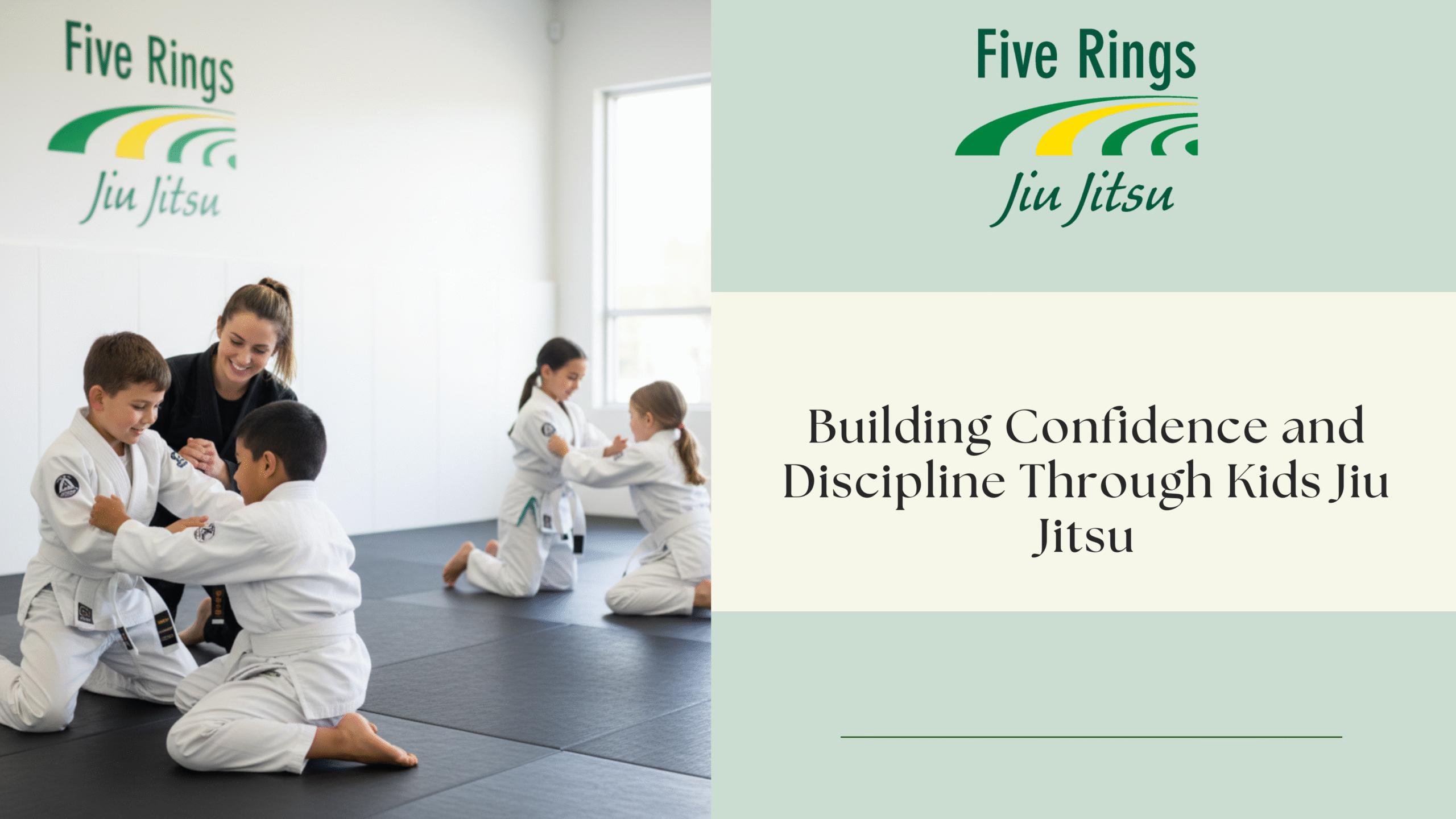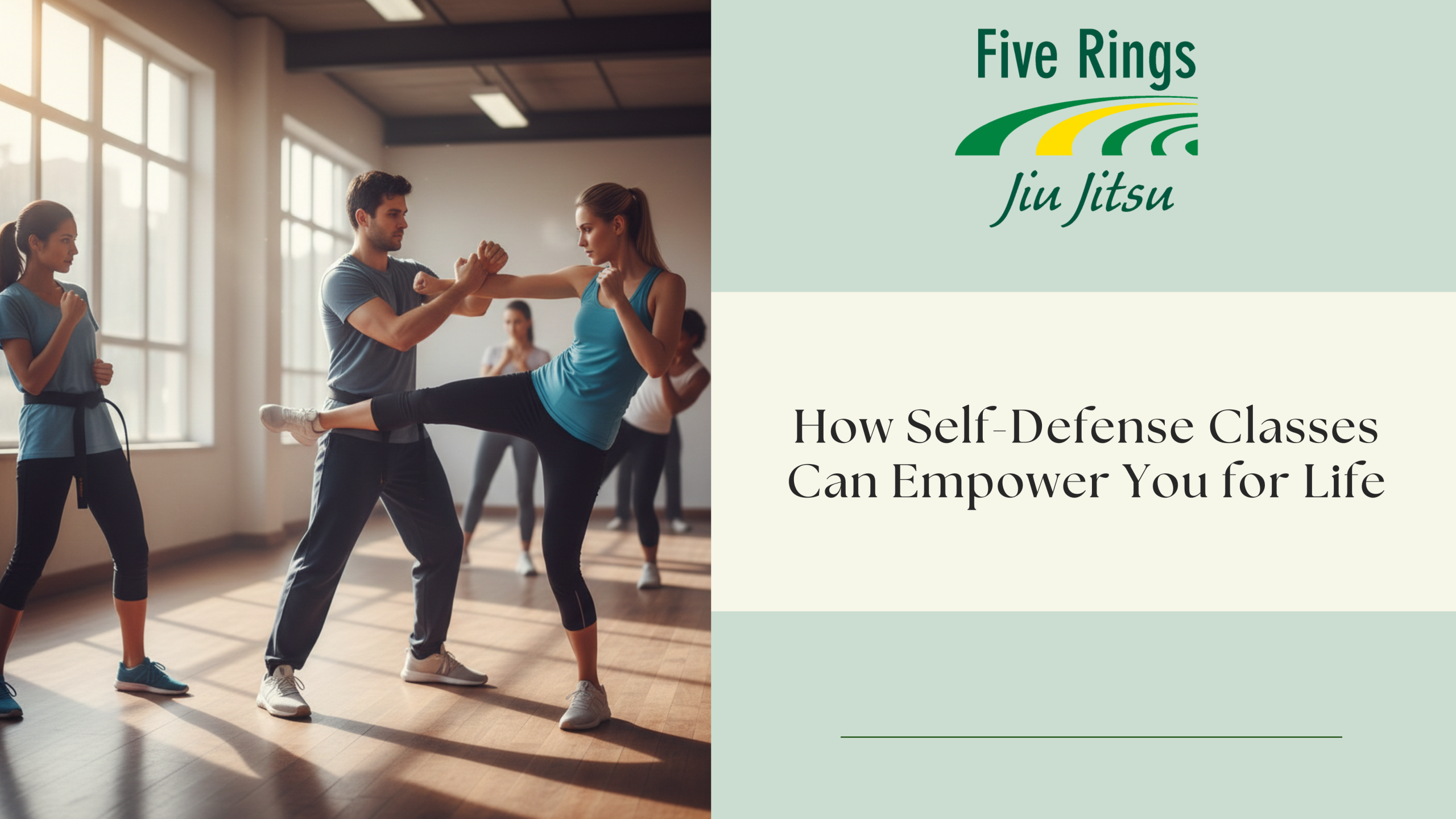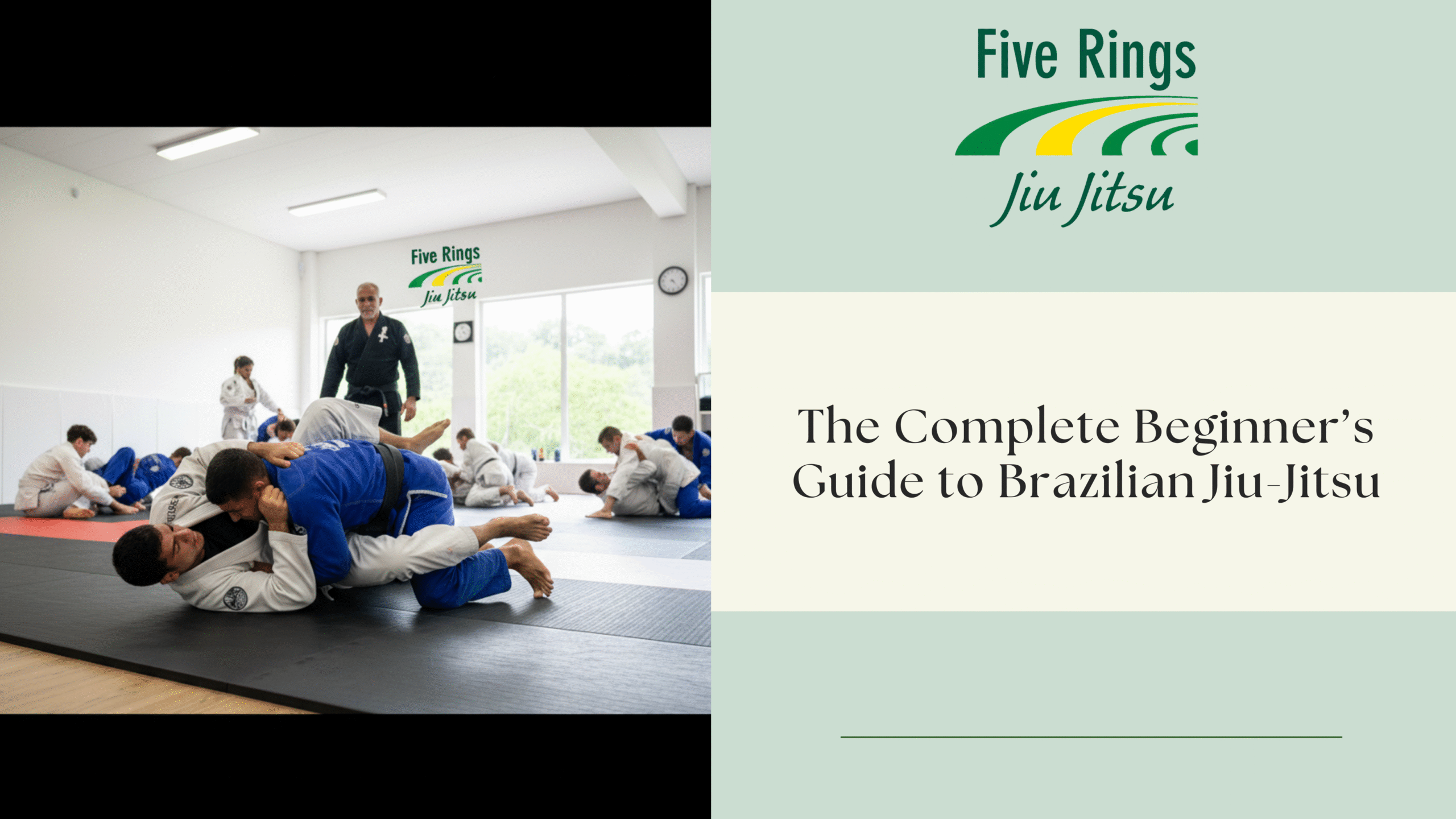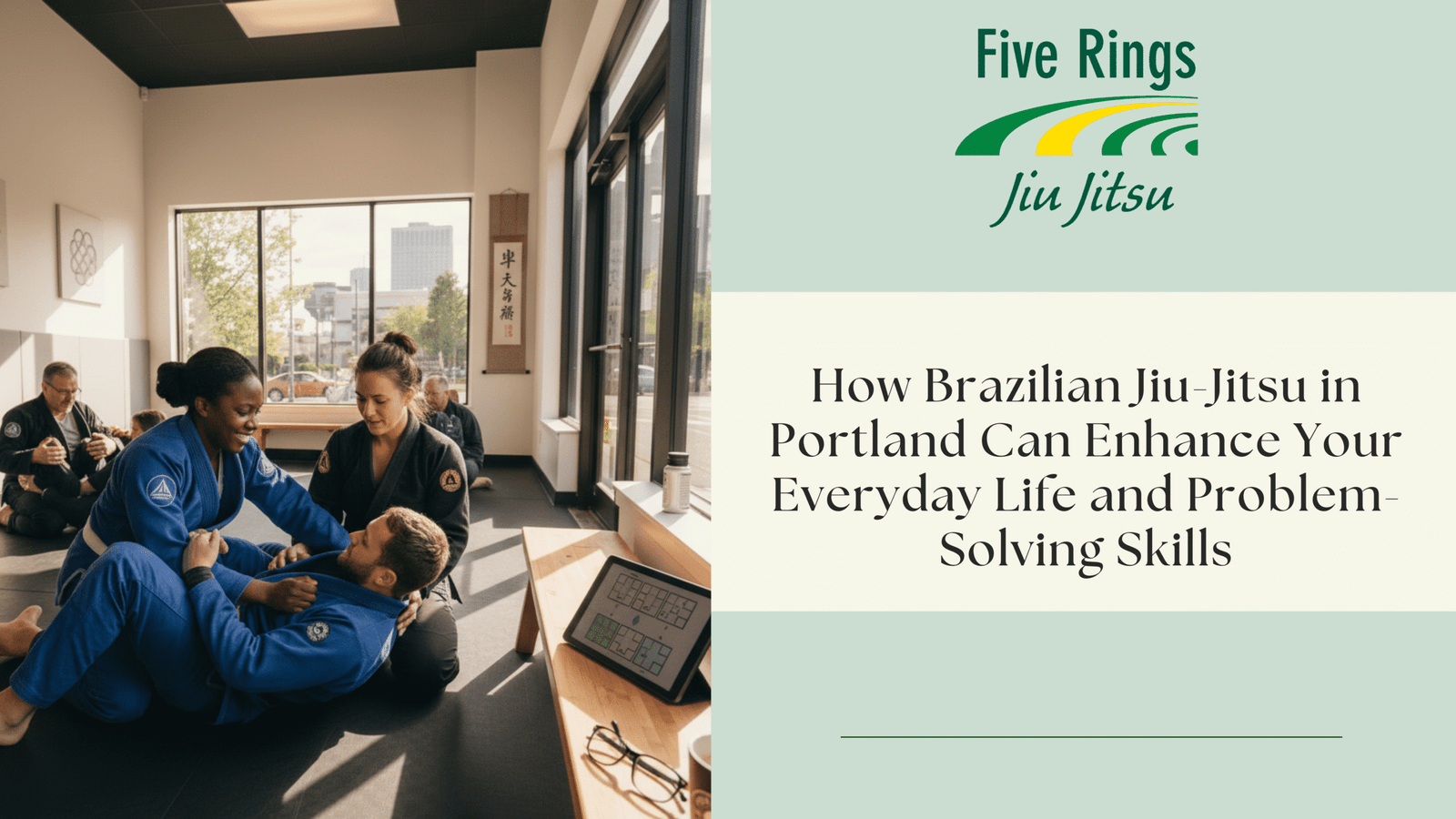In today’s fast-paced, digital world, helping children develop confidence, discipline, and focus is more important than ever. Many parents are turning to Kids Jiu Jitsu as a powerful and engaging way to teach these essential life skills. Beyond self-defense, Jiu Jitsu promotes mental toughness, physical health, respect, and problem-solving, qualities that shape a child’s character both on and off the mats.
Whether your child is shy, energetic, or somewhere in between, enrolling them in Kids Jiu Jitsu classes can be one of the best decisions you make for their development.
1. What Makes Jiu-Jitsu Unique for Kids?
Unlike some other martial arts, Brazilian Jiu-Jitsu (BJJ) focuses less on striking and more on technique, leverage, and control. Children learn how to defend themselves safely, using skill instead of force. This makes it suitable for all body types and ages, ensuring every child feels capable and included.
Jiu-Jitsu teaches kids that size and strength aren’t everything; strategy and persistence often win the match. This mindset translates directly to real-life challenges, encouraging them to think critically and handle setbacks with patience.
2. Confidence Through Progress and Achievement
One of the greatest benefits of Kids Jiu Jitsu is the way it builds confidence through consistent progress. Each class introduces new techniques, challenges, and achievements that kids can measure over time.
- Belt promotions provide tangible rewards for effort and improvement.
- Kids learn to set goals and celebrate each milestone.
- Facing and overcoming challenges on the mat builds a sense of accomplishment.
When children see their hard work pay off, they gain confidence not just in Jiu Jitsu, but in school, sports, and social situations too.
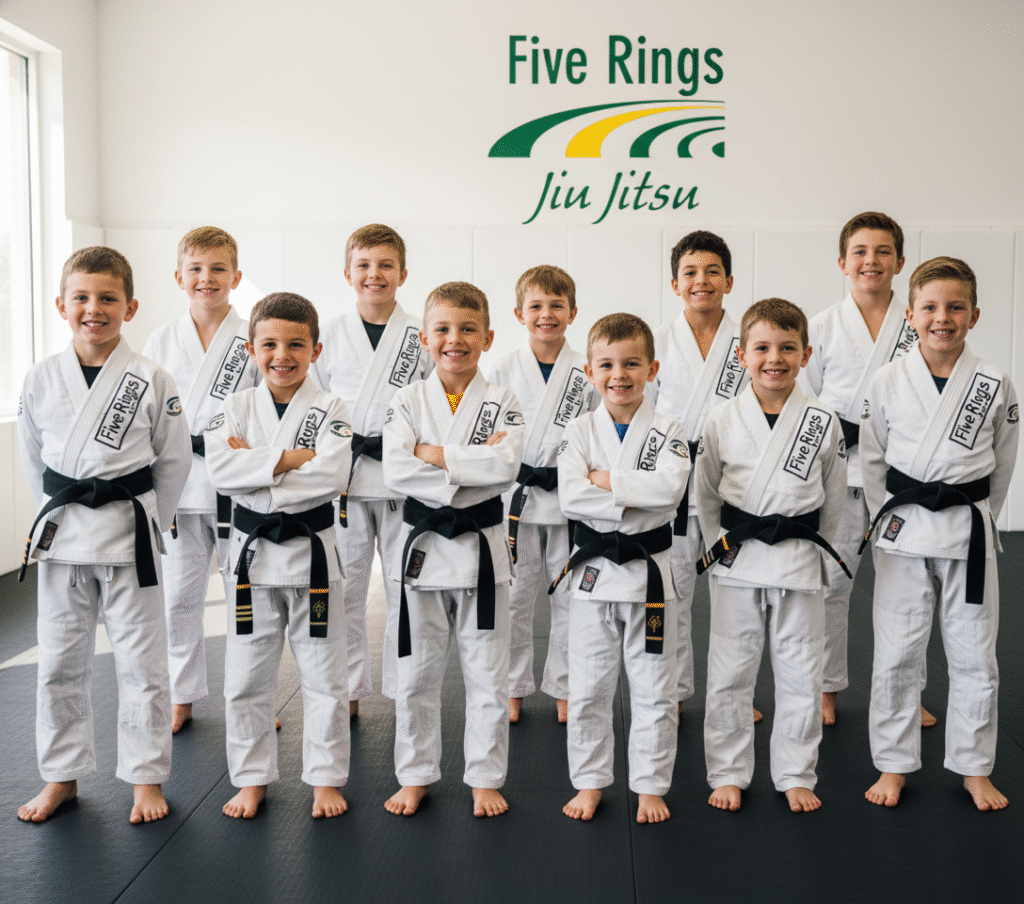
3. Developing Discipline and Focus
Jiu-Jitsu requires focus, patience, and attention to detail. Every movement and grip must be practiced with precision. As children learn to slow down and pay attention, they naturally develop stronger concentration and self-control.
Instructors emphasize respect, bowing before and after class, listening carefully, and helping peers. Over time, these habits shape a child’s behavior and mindset, teaching them the value of discipline, respect, and perseverance.
4. Encouraging Teamwork and Respect
While Jiu-Jitsu is often seen as an individual sport, it thrives on teamwork and mutual respect. Kids learn that improvement comes from helping one another grow. They drill techniques with partners, celebrate each other’s victories, and learn humility in defeat.
This environment fosters strong friendships and a supportive community. Children begin to understand that success isn’t about being better than others, it’s about being better than they were yesterday.
5. Physical and Mental Benefits
Beyond building character, Jiu-Jitsu offers a full-body workout that improves coordination, flexibility, strength, and endurance. For many kids, it becomes a fun way to stay active without the pressure of traditional team sports.
Additionally, Jiu-Jitsu promotes mental resilience. Kids learn how to remain calm under pressure, control their emotions, and approach challenges strategically rather than impulsively. These are powerful tools for managing stress, anxiety, and frustration in everyday life.
6. Teaching Real-World Self-Defense
While confidence and discipline are key goals, practical self-defense remains an essential part of Jiu-Jitsu training. Kids are taught how to protect themselves in safe, controlled ways, without aggression or violence.
They learn:
- How to de-escalate situations.
- How to defend against larger opponents using leverage.
- The importance of using martial arts responsibly.
This builds a sense of empowerment and safety that can be life-changing for children who struggle with bullying or low self-esteem.
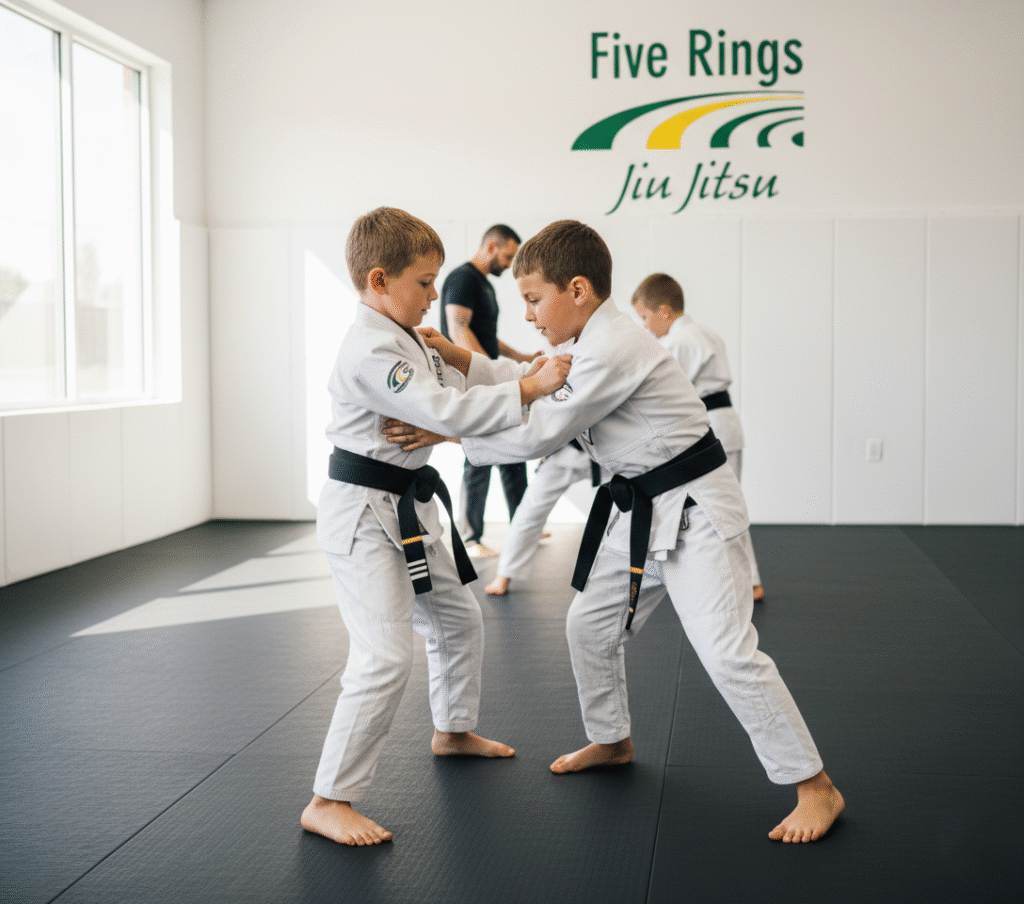
7. How Parents See the Transformation
Parents often notice remarkable changes within a few weeks of classes:
- Improved listening and respect for authority.
- Increased confidence in social settings.
- Better focus and behavior at school.
- Stronger work ethic and goal-setting habits.
Jiu-Jitsu becomes more than a sport; it’s a transformative journey that equips children with the mindset to handle life’s challenges.
8. Choosing the Right Jiu-Jitsu School
Not all martial arts schools are the same. When selecting a Kids Jiu Jitsu program, look for:
- Certified and experienced instructors who specialize in teaching children.
- A welcoming, safe, and structured environment.
- Age-appropriate classes that focus on fun, learning, and respect.
- Positive reinforcement rather than intimidation.
The best programs prioritize character development alongside technique, ensuring kids grow both physically and emotionally.
9. Jiu-Jitsu as a Lifelong Skill
Jiu-Jitsu teaches lessons that last long after kids leave the mat. The discipline, resilience, and confidence they gain become foundational skills for adulthood. Whether they continue in martial arts or move on to other pursuits, the mindset of perseverance, respect, and self-improvement remains with them forever.
Conclusion: Empowering Kids for Life

Building confidence and discipline through Kids Jiu Jitsu goes far beyond learning to grapple or defend. It’s about shaping well-rounded, resilient, and respectful individuals who can face challenges with strength and self-assurance.
Call to Action
If you’re a parent looking for an activity that nurtures your child’s mind, body, and spirit, Kids Jiu Jitsu is the perfect choice. Watch them grow in courage, focus, and respect, on and off the mat. Contact us today!

